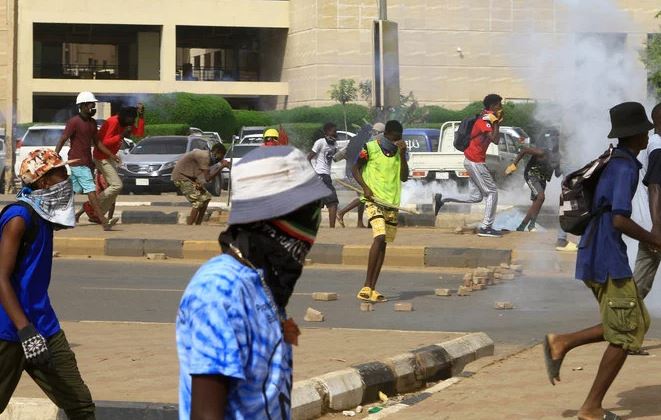The failure of the peace process in South Sudan and the subsequent extension of transition deadlines will lead to further suffering of civilians and the inevitable outbreak of civil war, women’s activist Lilian Riziq warned a meeting of the UN Security Council on Friday.
Riziq, president of South Sudan Women’s Empowerment Network, was responding to a report delivered by Nicholas Haysom, the special representative of the secretary general for the UN Mission in South Sudan.
Haysom had told the meeting that the fundamentals of the agreement reached in 2018, taking South Sudan from conflict to peace, remained valid — but he said that while a ceasefire had held, the situation in the country remained highly volatile.
“(It is) four years after the signing of the peace agreement in 2018,” Riziq said.
“The power-sharing agreement has neither ended the violence nor delivered the needed reforms. The situation in South Sudan is unsustainable.”
Riziq said that the whole country was “breaking down,” adding that there was “rampant insecurity” and enforced displacement of civilians.
“Women and girls are routinely subjected to sexual violence,” she said.
She added that the recent graduation of unified security forces by the so-called revitalized transitional government had failed to bring about stability.
Riziq said that a joint human rights report, released on Sept. 6, 2022, “documented horrific violations and abuses of human rights in South Sudan.”
These violations included 131 cases of rape and gang rape, including girls as young as eight years old, and a nine-year-old girl who was gang-raped to death, she said.
“The current government has failed to carry out its mandate, including implementing the peace agreement and protecting civilians from state corruption and misuse of resources, especially oil revenue.”
“Therefore, extending the current government’s term despite its failure to engender peace, democracy and development will prolong the suffering of ordinary citizens.”
“In fact, the extension of the term of the government without an inclusive participation of civil society and other political and social groups will entrench the parties and encourage the government to remain in power.”
Riziq warned that delays would lead to violence and outbreak of a fully fledged war.
“The war will lead to a total collapse of South Sudan,” she said.
Riziq called on the international community to support calls for a “broad-based process to ensure the inclusivity of South Sudan’s transition to peace, democracy and development.”
“In this regard, we support the Fordham University initiative to convene a broad-based meeting on South Sudan as a follow-up to the roundtable discussion held in New York on June 3, 2023,” she said.
The initiative will seek to convene an inclusive political dialogue for South Sudanese stakeholders in the region, she said, adding that the goal was to help the South Sudanese reach a broad consensus on a roadmap for a new transitional government program.
Riziq said the nonpartisan initiative had the potential to influence and push representatives to engage in inclusive political dialogue and agree on a roadmap for a transitional program with a “specific mandate and timeline for free, fair and credible inclusive election.”
“We believe such a process will help the South Sudanese to get out of the vicious cycle of violence and political violence and build a society that will engage good governance, sustainable development and ensure justice and accountability,” she said.
In his report published to the UN on Tuesday, Haysom also revealed that scores of civilians had been killed in political clashes in South Sudan between February and May this year, with women and children exposed to brutal assaults, including gang rape.
In a meeting of the Security Council on Thursday, delegates heard that South Sudan was one of the most dangerous places to be an aid worker in 2021, with 319 violent incidents against humanitarian workers and assets in the country.
Additionally, five aid workers were killed in 2021 — five more have died since the beginning of this year.
Despite efforts by the UN Mission in South Sudan to bring about a sustainable peace, Haysom detailed continued outbreaks of inter-communal violence.
His report, published on Tuesday, accused all sides in the conflict of committing severe abuses, with pro-government forces and militias appearing to be “the main perpetrators of the human rights violations.”
Haysom said the violence caused 44,000 people to flee their homes across 26 villages, with a total of 131 cases of rape and gang-rape documented.
Haysom’s report noted the extension of the transitional period that previously held a February 2023 deadline.
And he said that as such signatory parties have agreed on a roadmap for completing the remaining tasks of the country’s transition through a set of revi

